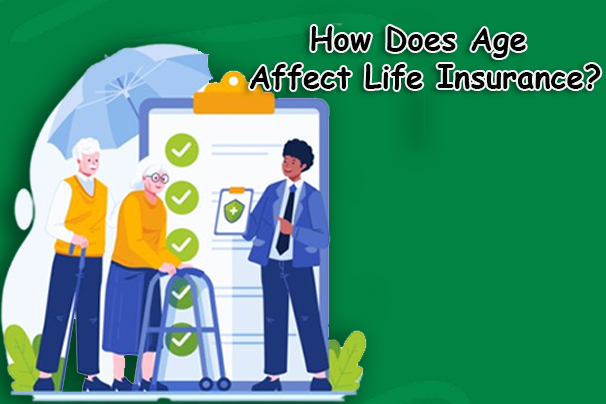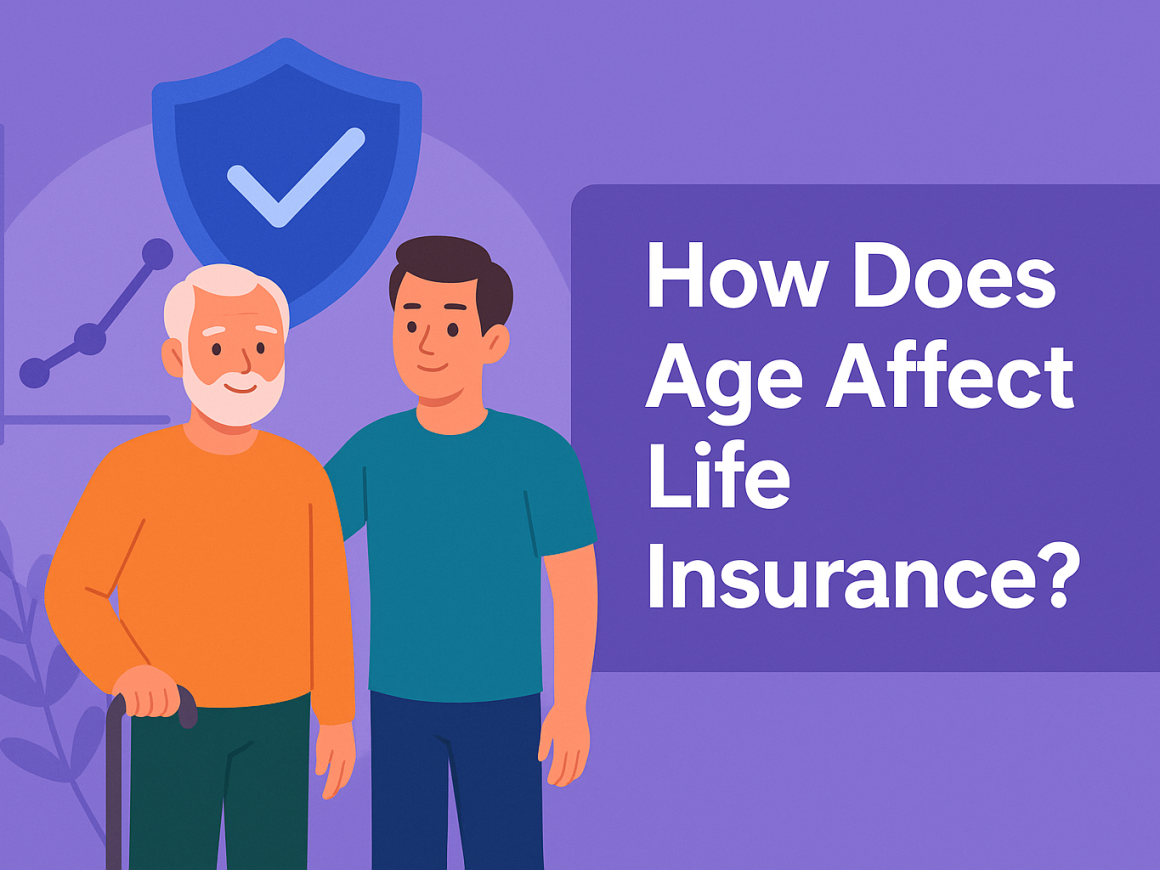How Does Age Affect Life Insurance? Understanding how to estimate your annual premium is crucial before purchasing a life insurance policy. In addition, many factors can affect your life insurance, and age is one of them. Your age is a major factor that most life insurance providers consider since it can affect your coverage. However, you might be wondering how age can affect life insurance.

Your age is one of the major factors that can affect your life insurance cost, which goes up annually by an average of 8% to 10%. Additionally, it impacts eligibility for life insurance with additional stringent medical exams. This is because it increases the chance of illness or death as you get older during the policy term. This article will analyze how age can affect life insurance rates, helping you to choose and make a wise decision.
How Does Age Affect Life Insurance?
Age is a major factor that can affect your life insurance policy, which makes it difficult for most people to get coverage. However, the type of coverage also plays a significant role in determining the success of an insurance company. For example, the same insurance company may provide different insurance types to individuals under 64 and 55. Additionally, age restrictions vary among insurance providers.
Unlike term life insurance, whole life insurance has higher age limits. Also, your bodily health is crucial, so you need to be in good health to avoid major health issues. However, you might need to get a medical examination if you have one or more pre-existing conditions. Furthermore, age can affect the amount your life insurance disburses. As you age, the risk of paying out for term insurance increases, while the payout period for whole life insurance may be shorter. Lastly, insurance providers usually offer affordable rates for policies that would cover policyholders for a long period.
Other Factors That Affect Life Insurance
Aside from age, there are several factors that can affect your life insurance. These factors are considered by insurance companies when determining premiums. To increase coverage, riders can be included in a policy. Moreover, the premium may be affected by certain risk factors. The following factors may include
- Health.
- Coverage type.
- Gender.
- Job.
- Hobby.
- Coverage limit.
Premiums are typically lower for the lowest-risk class, such as Elite or Preferred Plus. It may be higher for substandard rates due to age, smoking status, health, or other risk factors. Furthermore, the rate of return on cash value can also affect whole life or universal policy premiums.
At What Age Should I Get Life Insurance?
The cost of life insurance would be affordable when you are young and fit. Generally, it’s advisable to obtain life insurance when you are young to reduce your annual rates, especially if you need it in the future. A typical instance is when you intend to have a family or send a child to college in a few years.
Are There Age Restrictions for Obtaining Life Insurance?
Life insurance is available to individuals up to the age of 90, and many providers offer it to those over 50. However, there are some situations in which you will need to present a medical report or undergo a medical examination. Getting insurance depends less on your age and more on the stage of life you have reached and your evolving situation, such as your financial stability. Although there is no minimum age requirement for life insurance, you must be at least eighteen to enter into a financial agreement, such as an insurance policy.
What Happens to the Cost of Life Insurance As You Get Older?
As you get older, you should expect to pay more for life insurance premiums. This is because your chances of dying within your policy term increase, making you a greater risk to an insurance company. However, there are a lot of other things a provider would consider, such as your health and whether you smoke.
How to Get Affordable Life Insurance
Despite the fact that the rate of your life insurance is considered a major factor, getting an affordable policy may not be suitable for you. However, if you want to reduce the rates without reducing the coverage amount, you should compare life insurance rates and follow these methods:
Get coverage while young
The chance of experiencing health issues increases with age. Therefore, it will usually be less expensive to purchase life insurance when you are young and healthy than to do that in the future.
Remain healthy
Making healthier lifestyle choices, such as exercising, eating a balanced diet, and quitting smoking, may reduce your risk. In addition, it could result in cheaper life insurance premiums.
Get the right coverage type
It’s important that individuals select the right policy for their needs. For instance, term life insurance offers lower premiums and a high level of coverage when it’s most required, but it can also be limited to a specific number of years.
Always review your coverage
Make sure your insurance still suits your needs by reviewing it, particularly if your life has changed significantly, such as via marriage, the addition of family members, or a divorce.
Shop around
To ensure you’re receiving value for your money, compare the exclusions and coverage levels of several policies in addition to their prices. Furthermore, in less than four minutes, compare quotes for life insurance.
Life insurance may be crucial for giving your loved ones financial security, even if it is not legally required like auto insurance. If you’re uncertain about your loved ones’ safety in case of your death, consider purchasing life insurance to ensure their well-being. To cover their investment and your property, mortgage lenders may require you to obtain life insurance when you purchase a home.






